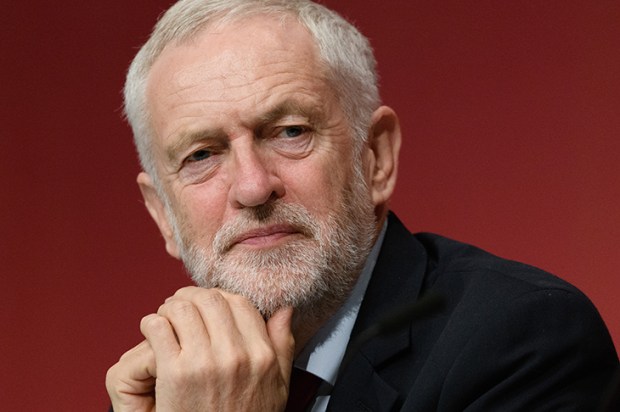Jesse Norman was permitted three minutes for his speech to the Commons in last Friday’s debate. But the contribution from the Conservative MP for Hereford & South Herefordshire was one of the more important backbench interventions — and no less important for being wide of the debate’s focus.
The House was being invited to support British intervention against the Islamic State. Mr Norman’s speech was about whether the invitation was even appropriate. As he put it, ‘A convention has started to develop that, except in an emergency, major foreign policy interventions must be pre-approved by a vote in Parliament.’ The MP thought this unwise.
I disagree. Or half-disagree. But Norman’s case was powerful, and I shall give you the gist. He is all in favour of debates, questions or statements on military action; he thinks them vital; but he objects to the emerging rule that ‘a prior authorising vote’ should be required. ‘The plain fact is,’ he said, that in matters like this, ‘members of the House are inevitably far less well informed than ministers who follow and reflect on the issues every day. We do not have the same access to officials and advisers; we are not privy to diplomatic traffic or secret intelligence; and we are not briefed by, and may not demand briefings from, our armed forces. As a large corporate body, we lack the capacity to react quickly and without warning to fast-changing events. The result is delay and a loss of agility and surprise, which ill serves our forces in the field.’
Norman’s second argument was that a Commons authorisation, once made, ‘binds members in their own minds, rather than allowing them the opportunity to assess each government decision on its own merits… Ministers can always take final refuge in saying, “Well, you authorised it.”’
I must dismiss that second argument out of hand. It is far too strong. We’re all of us humanly disinclined to revise our opinions once registered; but we often do have to take a view.
I’m afraid Norman’s first argument is also too strong. If the fact that ministers know things backbenchers don’t were an argument against MPs being able to stop government in its tracks, MPs would be left with little to do. On a wide range of ministerial responsibilities, not defence alone, debates are rare in which ministers don’t know more than most backbenchers. Nevertheless backbenchers do regularly authorise (or block) the implementation of policy. They should.
The whole theory of democracy offers amateurs, not professionals, the final say. That’s what a general election does too. Democracy supposes amateurs may have the wisdom and maturity to recognise the limits of their knowledge; but the wisdom, too, to realise that even though experts may know more facts, experts may still reach the wrong conclusion.
It may sometimes be true (especially in war) that ministers have secret intelligence denied the rest of us, but I should be very wary indeed of the idea that this means the rest of us can’t have a useful opinion. ‘If only you could see the intelligence that crosses my desk…’ Tony Blair was wont to say when mere amateurs doubted his claims about weapons of mass destruction. If only we had been less impressed.
The same claim was advanced in favour of 90-day detention without trial, which the House blocked. Ministers should certainly be able to tell MPs when their opinions are led by important secrets; they should ask MPs to take them on trust. But it should be up to MPs to decide whether to.
Norman has a point about the loss of the element of surprise, but I’d return the same answer: Parliament should be trusted to understand when military action cannot be debated in advance; and to forgive the lack of prior debate in this case. If the case was strong, Parliament always would retrospectively forgive.
In that last assertion, however, lie the seeds of a third way between the view that the House should not be asked to authorise war, and the view that it always should. The word that I think is inappropriate — and here I agree with Jesse Norman — is ‘authorise’. A convention that could and (I’d argue) should arise is that prior approval should be sought wherever that is possible and reasonable; and that this will depend on the circumstances.
Since these will vary enormously, and reasonableness will often be a matter of opinion, no mechanism for obtaining (say) a Speaker’s certificate before prior debate is denied, is likely to prove workable. The surrounding circumstances being so fluid, the concept of licence or authorisation is unworkable. There should simply be a presumption that prior debate and resolution take place wherever possible.
One should not look forward to any new military adventure, but if one should arise before too long in which for obvious reasons no prior approval was sought, that would be a useful corrective to the development Mr Norman fears: an iron rule.
The Prime Minister’s proviso last Friday, that ‘if there was a moment when it looked as though there could be an urgent humanitarian need for intervention, I would be prepared to order that intervention and then come to the House and explain why’, was along the right lines but did not go far enough. Self-defence, for instance, as well as humanitarian concerns, could be a reason. The Crown (essentially, prime ministers) should always reserve the right to declare war without prior announcement or debate; but should not do so unreasonably.
A vague formulation, I grant, but plenty else in our unwritten constitution works well enough on such understandings. A convincing display of parliamentary support is an important weapon in any government’s armoury during warfare. If a convention were to arise — as I think it is beginning to arise — that this should usually be sought, then I think, pace Jesse Norman, that’s a good thing. But he sounded a useful note of warning last Friday.
 The Spectator is holding a debate ‘Iraq and Syria are lost causes: intervention can’t help’ at 7pm on Wednesday 22 October at Church House, SW1. Speakers for the motion will include John Redwood and Patrick Cockburn, and against, Douglas Murray, Ed Husain and General The Lord Dannatt. Chairing the debate will be Andrew Neil. For tickets and further information, click here.
The Spectator is holding a debate ‘Iraq and Syria are lost causes: intervention can’t help’ at 7pm on Wednesday 22 October at Church House, SW1. Speakers for the motion will include John Redwood and Patrick Cockburn, and against, Douglas Murray, Ed Husain and General The Lord Dannatt. Chairing the debate will be Andrew Neil. For tickets and further information, click here.
Got something to add? Join the discussion and comment below.
Get 10 issues for just $10
Subscribe to The Spectator Australia today for the next 10 magazine issues, plus full online access, for just $10.
You might disagree with half of it, but you’ll enjoy reading all of it. Try your first month for free, then just $2 a week for the remainder of your first year.















Comments
Don't miss out
Join the conversation with other Spectator Australia readers. Subscribe to leave a comment.
SUBSCRIBEAlready a subscriber? Log in